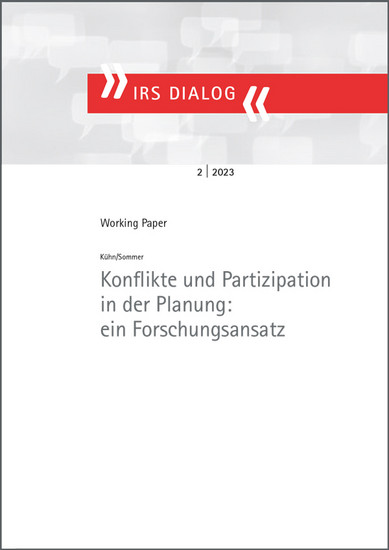Hauptinhalt
Konflikte und Partizipation in der Planung: Ein Forschungsansatz
IRS Dialog 2 | 2023

This working paper addresses large-scale projects, often known as megaprojects, and their disruptive effects on policy and planning. Drawing on literature from various disciplines, the first part of the paper traces large-scale project development in the 20th and 21st century and reflects on different kinds of projects, the intentions behind their implementation, and the impacts they have on places, systems, and communities.
The second part of the paper examines the concept of the green transition and the role that large-scale renewable energy (RE) projects play in achieving it. Wind power farms, solar power parks, hydropower dams and gigafactories for electric vehicle and battery manufacturing are examples of such projects. They are promoted by decision-makers and investors alike as imperative in transforming energy and mobility systems, but are often met with local resistance in the places where they are implemented. The paper discusses the nature and significance of such projects, and reflects on their wider implications for local communities, governance and institutions.
Disruptions triggered by large-scale RE projects accentuate sometimes conflicting values (e.g., climate mitigation, nature conservation, economic growth), and pose challenges for governance at different scales and across different sectors. The need to accelerate RE expansion also brings regulatory issues to the fore, as project implementation is often obstructed by lengthy and complex permitting procedures. By examining large-scale RE projects, the paper draws attention to the diverging interests, values and prospects of future that materialize in the context of the green transition.

